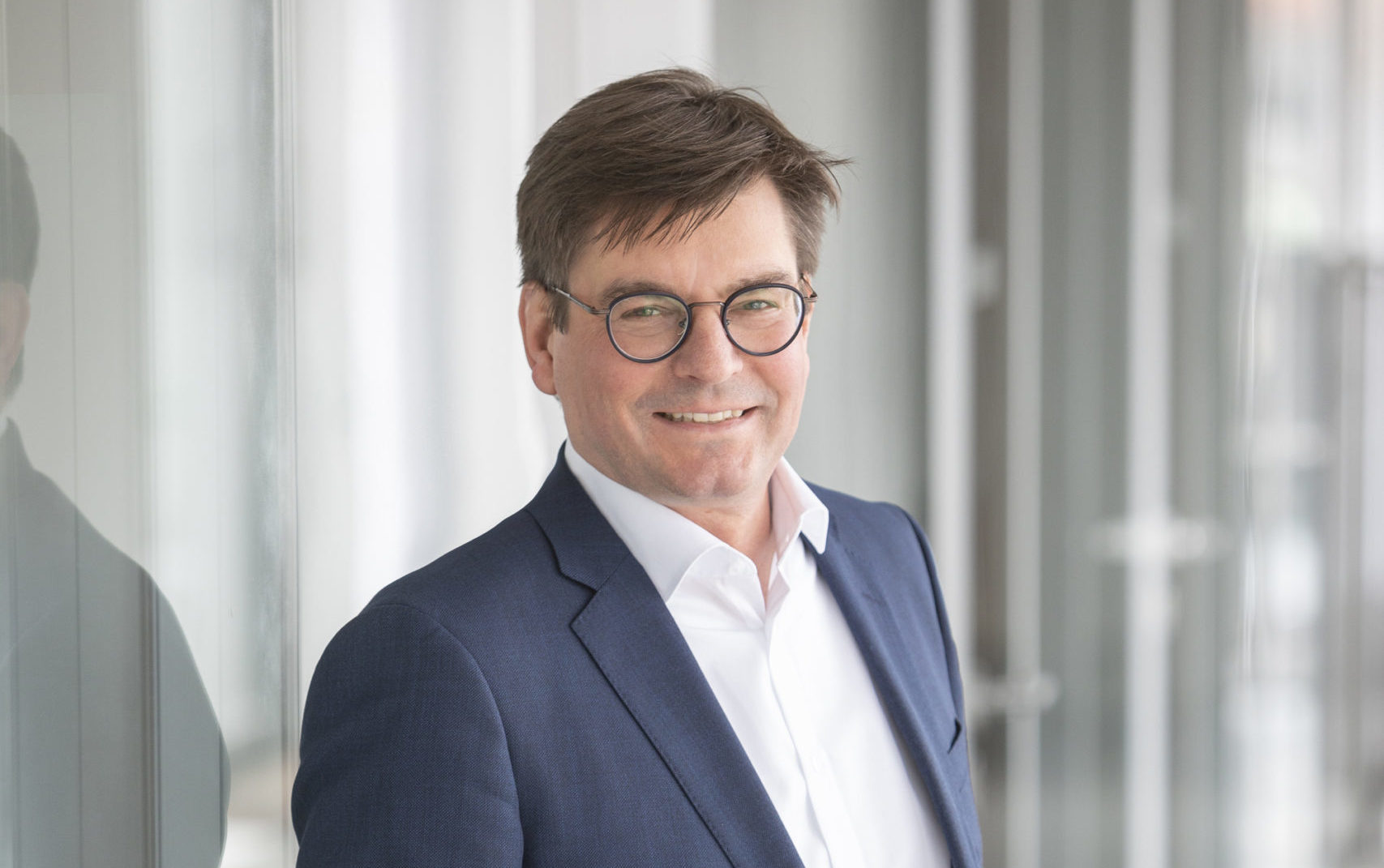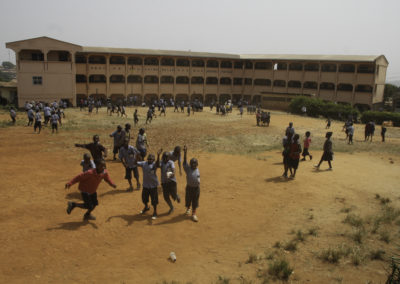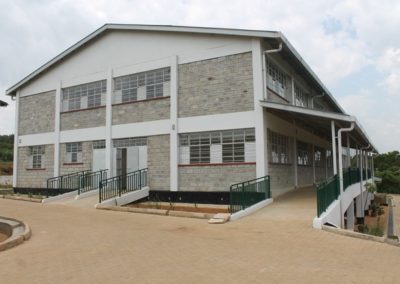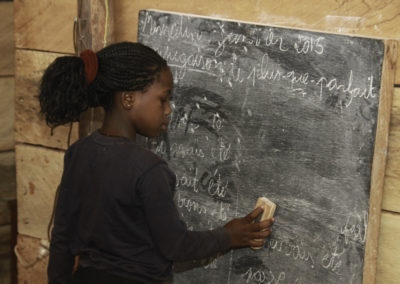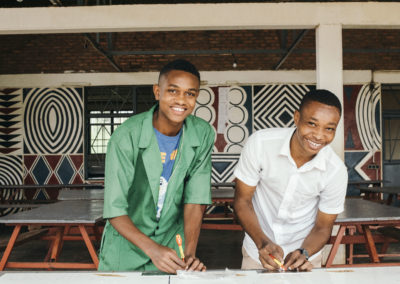As Head of Corporate Communications, Christoph Liedtke has been responsible for all communications at PATRIZIA AG since March 2020. At the beginning of 2021, he also became a
member of the PATRIZIA Foundation Board.
… a few personal questions to start with
Hello Mr Liedtke. It’s not long since you moved to PATRIZIA from a consulting firm. What prompted you to take this step?
My move to PATRIZIA almost exactly coincided with the beginning of the coronavirus pandemic. I practically jumped straight into crisis communication without a lead-in. It was fortunate that I’d already worked with PATRIZIA as a communications consultant since 2017. For me, the last year has confirmed that my decision to join PATRIZIA was the right one. I can tap into my experience on the corporate side at SAP, Infineon Technologies and Qimonda – and actively support the PATRIZIA path of becoming a global innovation and technology leader. I’ve also been impressed by Wolfgang Egger, as an individual, a business leader and for his personal qualities. We got on really well together from the very first meeting and we appreciate having each other as sparring partners.
What exactly are you responsible for at PATRIZIA AG? What does a head of corporate communications do?
The Corporate Communications function has overall responsibility for the communications of a company. This applies to internal and external communications,
but also dialogue between PATRIZIA and its key target groups. Internal communication includes our virtual townhall meetings, the PAT Talks and internal social media channels such as the intranet and Yammer, but also our employee magazine, lily. In terms of external communication, the aim is to proactively position PATRIZIA within relevant trade and business media, to build a strong network among relevant journalists and to cover important topics.
The second aspect is that we should have a solid understanding of our strategy so we’re in a position to explain the goals we’re pursuing and key areas for the company. Last week, for example, we had our first virtual PAT Talk of the year. The management board explained our 2020 financials and performance to everyone at PATRIZIA and gave an outlook of our strategic priorities and business development in 2021.
The topic we’re thinking about today is adding value for generations. What role do corporate communications play in this?
Communication is an all-encompassing discipline, so of course it has a role to play in contributing to value creation. The more visible companies are and the better their reputation, the better access they enjoy to markets and customers. The company will then be perceived differently, because convincing and credible communication helps forge new customer relationships and deepen existing ones. In terms of indirectly added value, impactful communication makes a tremendous contribution to the company. You just can’t measure it as directly as you’d like to. It’s a bit of a crux, but communicators don’t manage funds or assets. But my aspiration is clear: I want to make an active contribution to the value added by PATRIZIA.
How do you actively add value?
Communication must accompany and support the business – that’s the core task. Our responsibility is to ensure our strategy and business development are understood, accepted and supported internally and externally. That allows us to engender a sense of trust and add value, which includes bringing customers on board, keeping and motivating employees, or winning over banks and investors. This is where we’re called upon as communicators – by informing others, educating and working closely with our target groups in ways that are simple, plausible, fact-based and convincing.
PATRIZIA, communities and sustainable futures
There are an unbelievable number of things happening at the moment in terms of sustainability campaigns – Aldi no longer sells eggs from farms that fatten chickens or shred chicks, the Hypovereinsbank is exploring the sustainability in its DNA with the skier Felix Neureuther. Thinking for now beyond the property industry, what kinds of sustainability campaigns make a positive impression on you?
The issue of sustainability has been around for a long time now, as has climate change. But the acceleration in climate change has taken sustainability to a new level, partly through the Fridays for Future movement but also due to the impact of the pandemic. The question everyone needs to ask themselves at the moment is: what can I do on an individual level about my consumer behaviour? And companies need to ask themselves what they can do to contribute to a sustainable economy. This can be anything from packaging to buying a car. And the question the property industry has to ask itself is how sustainably it creates value, not just for investors but also for tenants. As the human race, we’ve not lived particularly sustainably for the last 50 years; we’ve been living at the expense of future generations. This is a challenge we all face, but it’s a particular responsibility for those who’ve benefited most from our growth in prosperity.
In terms of digital solutions and technology, two issues stand out for me. Digital technology and AI pave the way for smart solutions, which can save tremendous resources. Since the pandemic, but also before, many companies have managed to save resources by investing in digital transformation and virtual communication. Ten years ago, SAP built the first virtual room for board meetings to link up board members virtually between Walldorf, New York, San Francisco and Singapore. This allowed us to halve the number of flights undertaken by board members. That makes an active contribution to climate protection.
But digital technology can also encourage people to waste resources. In some areas, online business combined with endless consumption and convenience is resulting in tremendous strains on resources and pollution, just so people can have every whim pampered to, in quaint packaging on the doorstep. For me, it’s a double-edged sword. I think we need to make much more use of digital solutions and technology to do business more sustainably.
One item that’s high on the agenda at PATRIZIA AG is ‘building communities and sustainable futures’. How can that be reconciled with shareholder value?
This is about understanding the underlying raison d’être of our company – our ‘business purpose’. In other words, when we finance and build property, we create assets with a life cycle of 50 to 100 years, or even longer. When we do this, we leave a lasting impression on the nature of towns, cities and communities and what it’s like living there. Our investment activities have a completely different effect on society compared to selling consumer goods, such as washing machines or smartphones.
We have a long-term interest in growing the value of the properties we invest in. That includes ensuring they meet sustainability criteria, but also continuously improving our existing property portfolio in this area. If we don’t, it’s not possible to grow value. Of course, this not only benefits our investors, but indirectly it also works to the advantage of our shareholders. Not only that, but when you actively manage property you have to keep a close eye on the interests of different stakeholders and identify the best solution for everyone involved. Investors, building operators, tenants, residents – but also we at PATRIZIA – all come at this from different angles, with our own particular perspectives and interests based on different starting points. When you maintain an overview of all these different perspectives and balance them off against each other, you’re almost inevitably forced to think in the long term and sustainably.
PATRIZIA is significantly expanding its sustainability campaign and sees itself as a pioneer in this area. What responsibilities does the real estate industry bear towards society?
Our responsibility is huge. What do the estates and districts we invest in look like? What forms of coexistence do our properties enable? What access do they offer to education, knowledge, cultural interests, shopping, food and leisure pursuits? All of these things shape life for multiple generations living together in our towns and cities. In this respect, expectations regarding sustainability and our responsibilities to different generations are an imperative. So we also have to actively explore and consider forms of innovation and technology that enable sustainability, from using sustainable building materials to modern approaches to building, energy conservation, travel options, connectivity – anything basically that supports urban life in smart cities.
Where does the most catching up need to be done, and what challenges does this entail on a general level for society?
40% of global carbon emissions are accounted for by the construction and real estate industry. This already shows what a huge influence the property industry has on our climate and how we use resources. PATRIZIA is continuously expanding its share of ESG-certified funds. Another important issue is how investment managers are responding to changing lifestyles and the relentless trend towards urbanisation. To address this, two years ago PATRIZIA launched a Living Cities fund. More and more people now live together in tightly packed areas in cities, so how can you design cities to make them more liveable? We’re only just getting out of the starting blocks in this area. But one thing we do know: we’ll have to make living alongside one another in towns and cities much more sustainable in the future – more than has been the case until now.
Covid-19 has been hugely challenging for us as an overall society. Thinking about people’s access to education, what changes have come about as a result of coronavirus?
The coronavirus is primarily seen as a global health crisis. But education is also a key issue for us in developed, industrialised countries. When children can’t go to school for extended periods, the social disparities also widen where we are. But when you look at the impact coronavirus has on education on a global level, it’s in a completely different dimension. Where we are, maybe children lose a maximum of two years to Covid-19, but when they’re continually deprived of access to education in Third World countries, they lose the chance to enjoy a better life. If you want to pull people out of poverty, it can only be done with education. Coronavirus exacerbates the education crisis in developing countries, much more dramatically than it does here. And that’s something we’ve not really registered yet.
… the Foundation delivers the S in ESG
Congratulations! You were recently appointed to the PATRIZIA Foundation Board. The coronavirus pandemic has not exactly made things easier for people. What topics do you encounter on the board?
I’ve been overseeing the foundation for some time now, partly on a pro bono basis. I find the history and work of the foundation absolutely fascinating. It’s amazing how, right from the beginning, Wolfgang Egger built up his company based on the aim and aspiration of assuming social responsibility. When he started out, PATRIZIA was virtually unknown. This is something that sets the CEO apart – but also PATRIZIA. In good times and bad, the company donates 1% of its operating profit to the foundation, so that the foundation can invest all of its energy in projects and offer people the chance of receiving an education.
That’s why I was delighted to be appointed to the board, so I can help out. I come to this with a great deal of personal passion and of course my experience as a communications expert. The foundation needs to raise its visibility. It should continue to become more professional and it needs to think more internationally, because its mission is of a global nature. So the foundation depends on effective and persuasive communication, especially if it wants to attract more sponsors. I think this is where I can draw on my experience and provide support.
The mission the foundation has set itself is to provide education infrastructure. What does education mean to you in personal terms?
I lived in lots of different places when I was growing up. The reason for this was my father’s job – he was a starfighter pilot for the Bundeswehr, or German Federal Defence Forces. Every two or three years we moved again, from East Frisia to North Rhine-Westphalia, Bavaria and back again. I got to know the education system in the different states of Germany, and very early on I was confronted with the various cultural differences. I’ve always considered it a privilege that we have such a good education system in Germany. Education has been a tremendous enrichment to my life; it’s aroused my curiosity, and I was able to study abroad. I have an American degree, I’ve worked in the US in the course of my career, and I’ve gained a huge amount of international experience. For me, it shows how important education is. It’s also why I consider it my responsibility to do something to help, so people get the chance to receive an education.
The coronavirus pandemic has intensified the pressure on digital communication even further. One term you hear more and more often at the foundation in this respect is ‘digital classroom’ – and at PATRIZIA AG you hear them talking about New Work. Is there a connection here – or are there maybe even synergies?
That’s a good question, but maybe I’ll just say something briefly about the differences. Digital classrooms aren’t a new concept, but they’re taking on a completely different significance with the coronavirus – not just here in industrialised countries, but also in the developing countries where the PATRIZIA Foundation is working on local projects. What are you supposed to do if proper face-to-face instruction is no longer possible – for months or even years – or only to a limited extent? There are so many factors involved here – hardware, i.e. you have to equip schools with computers, the internet and connectivity. What should I do to adapt timetables, come up with virtual learning methods, train teachers, etc? It’s a huge challenge the foundation is taking on with its partners, but I think it’s an incredibly important thing to do.
New Work is an important initiative at PATRIZIA. The aim is to rethink our working environment, which revolves strongly around digital transformation. There are lots of boundaries and they’re breaking down. The delineation between people’s work and home lives is becoming increasingly blurred at the moment and the coronavirus has played an important role in accelerating this trend. The crossovers between the office and the living room, or between business contacts and social contacts, are erratic. The concepts we’re developing to address this are really exciting, because we can also use them for new developments, such as our office and residential assets.
We’ve completely redesigned the PATRIZIA offices in Frankfurt and Luxembourg to match New Work concepts. We’re designing our future workplaces, offering more open areas for creative activities and collaboration – but also more space for fun, motivation and personal fulfilment. This is also about offering a greater degree of freedom and flexibility to achieve a better work-life balance. We want to be one of the most attractive employers in our industry. New Work is a very important instrument in achieving this.
This ‘partnership mindset’ is also strongly anchored in thinking at the foundation. Who can the foundation form partnerships with to help other partners realise their potential – apart from PATRIZIA, that is?
If you ask me, the foundation has huge potential. Why do I say that? We know how to construct buildings sustainably, and how to develop neighbourhoods and the infrastructure that communities need to shape their own future sustainably. This experience can be extremely useful for many partners of the foundation. So it can make a much larger impact than PATRIZIA AG. Which partners would find the foundation interesting? I think any company or organisation that, like us, has the goal of fostering long-term education opportunities for children and young people in need. It takes a long time to gain this kind of experience by yourself. As a smaller foundation, our organisation is more adaptable and faster than large international foundations. We can offer potential impact and visibility to partners and sponsors, exactly where it’s needed, in very concrete terms. Our partners are familiar with our projects, they can become actively involved in them, and they see exactly where their donations open doors to education. I think for lots of people that’s an extremely appealing proposition.
The foundation works with its supporters and partners worldwide. Is this mainly because you can achieve more with one euro in Rwanda than in Munich?
I don’t see this as a dichotomy; that would be too simplistic. The foundation can do both, but the priority should be Rwanda – i.e. creating education infrastructure in developing countries. This doesn’t mean the foundation shouldn’t help disadvantaged people in Germany, which is something it’s been doing for some time – for example by supporting the Bunter Kreis foundation and other organisations.
But for example in Rwanda, €70,000 allows you to make a really important contribution to a new school building – which by the way is our goal for the Peak Challenge this summer, which was co-initiated by our HR board member Simon Woolf in London. Alternatively, you can put the money towards a digital classroom project in Tanzania. We should apply the educational leverage you gain from one euro where it might have the greatest impact. That’s why it’s right for the foundation to focus on building schools and supporting education opportunities in developing countries.
The Remote Run for Rwanda initiative showcased the energy that can be unleashed through PATRIZIA employees’ volunteering programmes. What opportunities do you see to amplify this energy to help develop the foundation?
The remote run mobilised lots of support. Clearly, combining volunteering and digital networks offers tremendous opportunities.
Our aim is for even more PATRIZIAns to network with each other and join in. But volunteering and providing active support has to be voluntary and based on a personal conviction. This is the only way to bring real ambassadors on board for the foundation. And of course it starts a domino effect, which increases the foundation’s visibility.
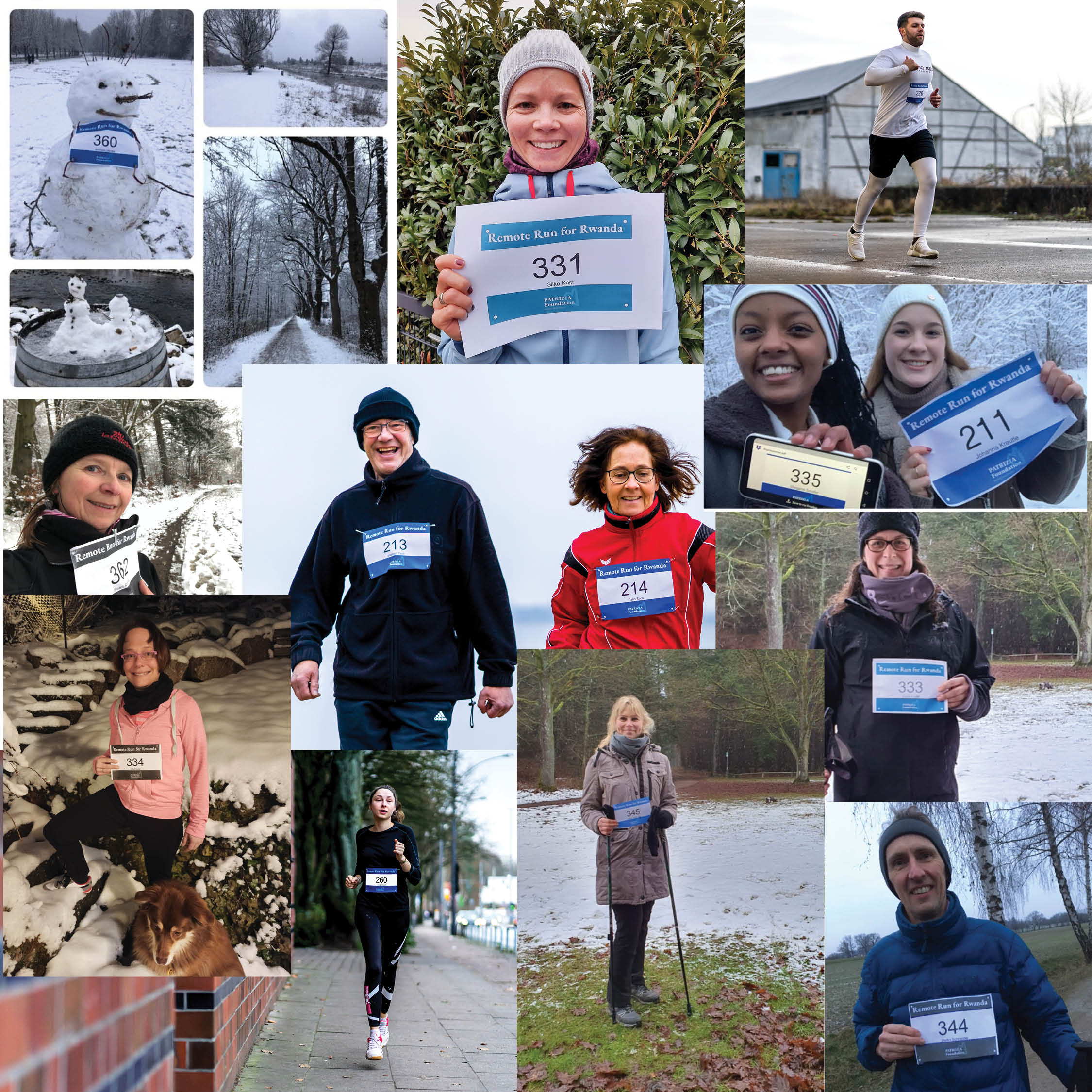
The support given by PATRIZIA AG has already allowed the foundation to realise lots of international projects and help children receive an education. What potential lies in the current drive to improve professional standards at the foundation? And as a communications expert, what do you recommend that the foundation do to leverage this potential even more effectively?
Becoming more professional in the work of the foundation is important to raise awareness levels beyond the world of PATRIZIA. I think it would be amazing if at some point you could say you’ve built up your own brand and have become a bit more independent and autonomous from the company. That has to be the big challenge. It’s a communication task, a branding task and a networking task. The company remains a reliable supporter; this should encourage the foundation to reach out further into the world and attract more partners, even ones who have nothing to do with the company at all, and this will allow it to expand more quickly.
The foundation needs to be much more assertive in selling itself as an expert in education infrastructure. We’re in a position to leverage more than 20 years of experience, not just with projects but also in terms of the expertise this brings, and this can be used in a targeted way to bring more partners on board – partners who want to join us in offering an education to disadvantaged children throughout the world. The sustainability we’ve based this on – in more than 20 locations worldwide, for over 20 years now – has made an essential contribution to the development of local communities. We need to make much more use of this expertise and our track record.
Christoph Lietdke
- Born in Düren (North Rhine-Westphalia) in 1963
- Degree in political science in Bonn and in Knoxville, Tennessee
- Many years of experience as a communications expert at SAP, Infi neon Technologies and Qimonda, and as a consultant for Gauly Advisors
- Already supported PATRIZIA as a communications consultant before joining the company

